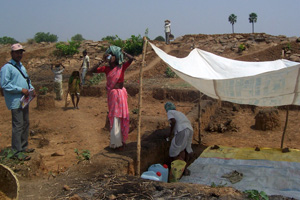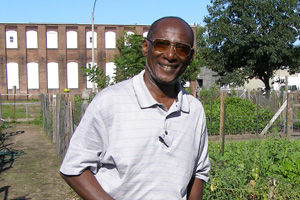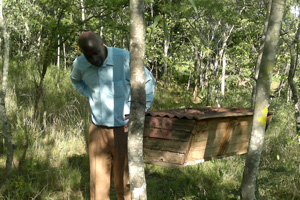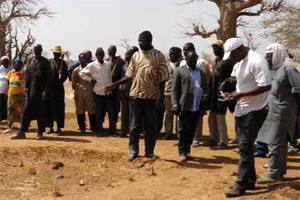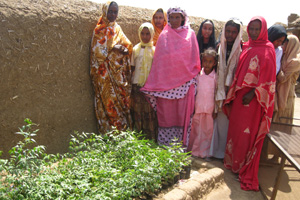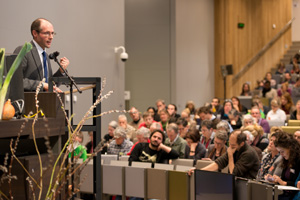Opinion by Million Belay.
We are told that high input agriculture will boost food production in Africa. A persistent worry for Million Belay is the loss of knowledge related to our nutritious, traditional crops if they succeed.
How Yapuchiris build climate resilience
Dealing with the uncertainties of changing climates is a challenge faced by farmers around the world. Near Cochabamba in Bolivia’s Andean high plateau, a group of agroecological farmers are leading the way by developing and sharing innovative practices that help their communities break out of the vicious cycle of increased poverty and vulnerability. But challenges remain…
The world’s largest safety net for family farmers?
India’s Mahatma Gandhi National Rural Employment Guarantee Act (MGNREGA) is the largest public-works based employment programme in the world. Unanimously enacted by the Indian parliament in 2005, implementation began in February 2006. With an annual budget of six billion US dollars, it now supports some fifty million rural people – larger than the population of Senegal, Mali and Niger combined. This article focuses on the successes, issues and potential of the Act to improve the well being of workers and family farmers.
A systems approach against poverty
Opinion by Million Belay.
Why is poverty deepening in Africa even when millions of dollars continue to be poured in to alleviate it?, asks Million Belay. He answers by highlighting how we need to promote agroecology, treat agriculture as a system, and move away from green revolution approaches.
“A revolution of thought is necessary” – Interview with Cantave Jean-Baptiste
Interview > Cantave Jean-Baptiste is a Haitian agronomist and rural development practitioner with more than three decades of experience supporting sustainable agriculture and strengthening peasant organisations. He is Executive Director of Partenariat pour le Développement Local (PDL) in Haiti, and a founding member of Groundswell International. Farming Matters asked Mr Jean-Baptiste how family farmers can build resilience in Haiti, a country where an estimated 80% of the population lives in poverty.
Building, defending and strengthening agroecology
This publication is based on a research conducted on the meaning and politics of agroecology from social movement perspectives.
Read more
Bees bring a new buzz to family farming in Zimbabwe
One way that family farmers improve their resilience to both climatic and economic shocks is to diversify what is produced. More and different crops and livestock, particularly local varieties and breeds are being promoted. Two other options stand out too – bees and trees. These have the added advantages of complementing the production of agricultural crops and enhancing the agroecosystem. In Zimbabwe, the Ruzivo Trust has been promoting beekeeping, and the results are showing the sweet taste of success. Bees can help farmers break out of poverty.
Moving from vulnerability to resilience in Africa
In August 2012, the Seidu family had to cope with the bad harvest. Like many farming families in northern Ghana, they had to adopt the ‘one-zero-one’ strategy for the children and the ‘zero-zero-one’ strategy for themselves. ‘One’ represents a meal, ‘zero’ is no meal. So during the lean season, their four children had breakfast in the morning, nothing at midday, and a meal in the evening.
Home nurseries: Viable businesses with environmental awareness
Butana is a dry plateau in northern Sudan, east of the river Nile. Covering 65,000 square kilometres, less than 10% can be described as ‘woodland’ in the vaguest sense of the word, and even these trees are disappearing rapidly. The Butana Integrated Rural Development Project began in 2008 with the aim of supporting the livelihoods of poor family farmers by strengthening their resilience in the face of recurrent droughts. And improving tree cover was a key means of achieving this.
Agroecology and the right to food – Interview with Olivier De Schutter
Interview > Olivier De Schutter – “Agroecology is really common sense. It means understanding how nature works, to replicate the natural workings of nature on farms in order to reduce dependency on external inputs. Agroecology preserves the ability for future generations to feed themselves. I believe we should teach more about agroecology and encourage exchanges between farmers. We cannot continue in this impasse of an oil dependent food production system.”



